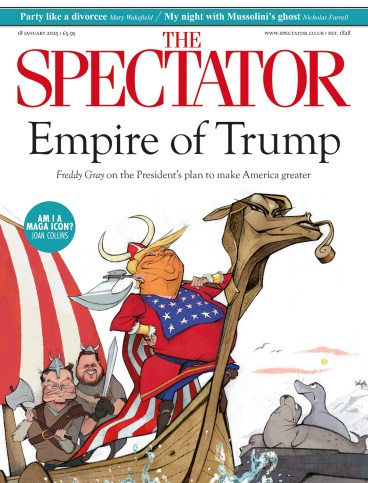
When passions are aroused, all of us are liable to overstate our case. Dan Hicks, a curator at Oxford’s extraordinary Aladdin’s Cave of anthropology, the Pitt-Rivers Museum, is perhaps a case in point. A Swedish academic, Staffan Lunden, has convincingly argued that Hicks is guilty of ‘distortion’ when writing about the British raid on Benin in 1897, which brought several thousand objects, including finely wrought brass statuettes, to museums across the world. Hicks published his uncompromising views in 2020 in a prize-winning book, The Brutish Museums: The Benin Bronzes, Colonial Violence and Cultural Restitution. His opinions about the Benin bronzes – which have been instrumental in the restitution movement – are only part of his wider programme that would leave thousands of gaps in the cabinets of the world’s finest museums.
The scholarly status of one of the key texts of the pro-restitution movement has been called into question
Lunden is thanked by Hicks in Brutish Museums, and insists that Britain’s colonial conquests involved violence and racism. In a recent article he writes: ‘The book’s overarching aim, to make the British (and one can add, westerners in general) come to terms with the colonial past and its enduring legacies, is easy to agree with.’ He is not an instinctive enemy of Hicks. This only makes his devastating denunciation more powerful. Lunden says:
‘The Brutish Museums has all the outward characteristics of being a well-researched and solid academic work, but a closer look reveals that it is not. The numerous errors and systematic misreading of sources resulting in wholly unsubstantiated claims about British violence and Edo casualties call its status as a scholarly work into question. It is worth further academic inquiry and discussion as emblematic of the post-truth era, where emotion, oversimplified messages, and personal opinion take precedence over evidence, but should be treated with extreme caution in any serious discussion on Benin history and the future of the Benin objects.’
No one is suggesting that Hicks has mischievously invented evidence.

Magazine articles are subscriber-only. Keep reading for just £1 a month
SUBSCRIBE TODAY- Free delivery of the magazine
- Unlimited website and app access
- Subscriber-only newsletters









Comments
Join the debate for just $5 for 3 months
Be part of the conversation with other Spectator readers by getting your first three months for $5.
UNLOCK ACCESS Just $5 for 3 monthsAlready a subscriber? Log in